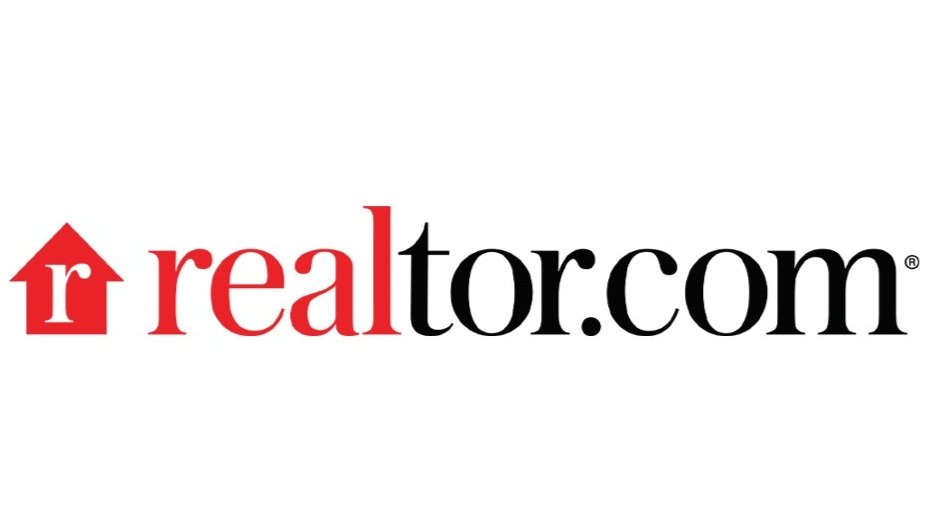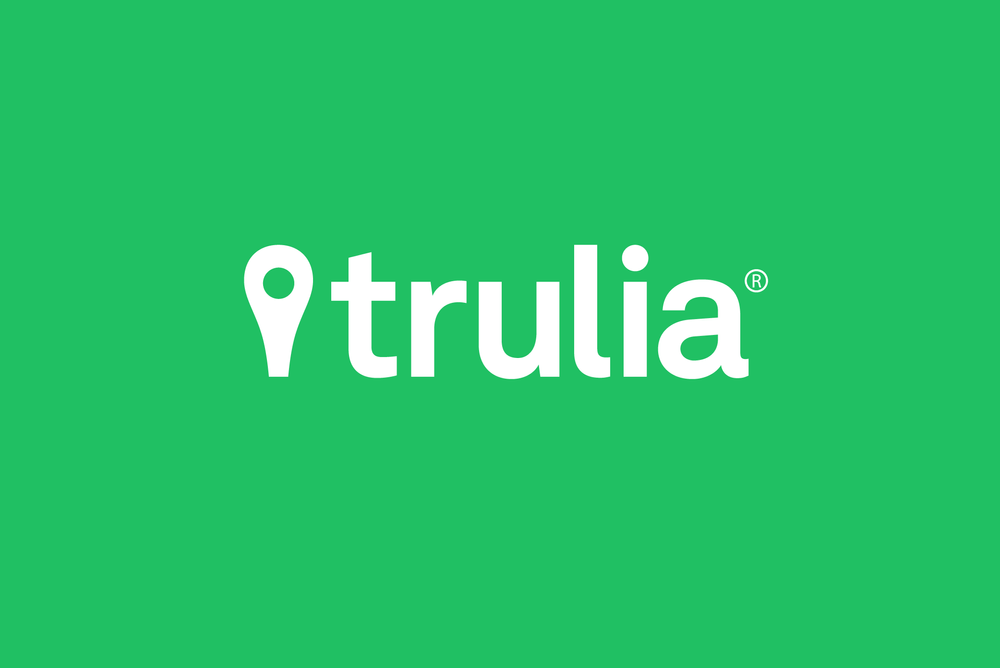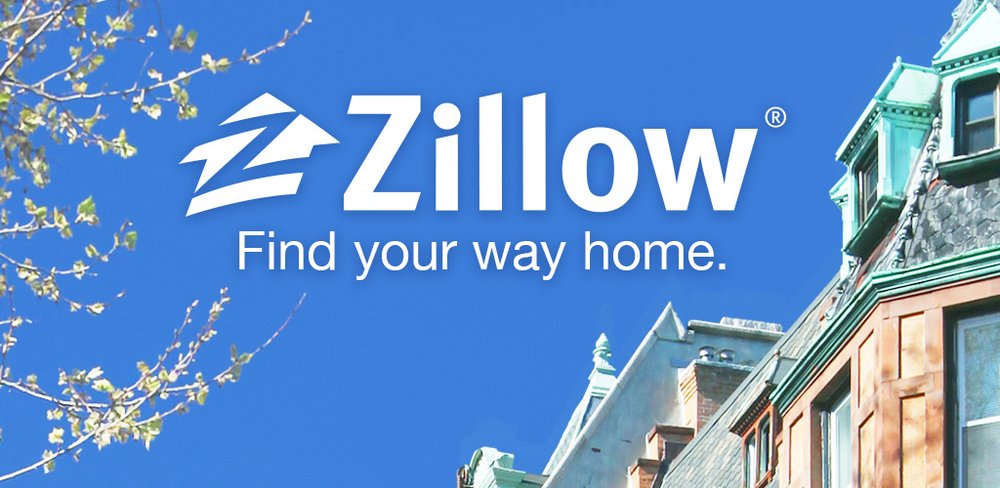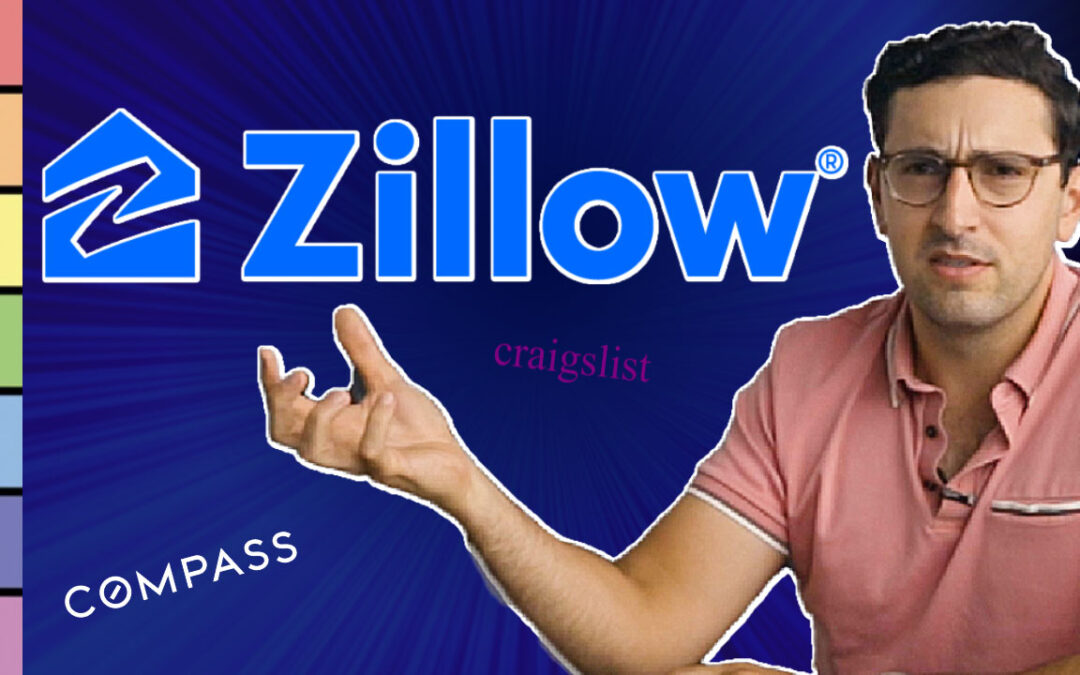If you’re house hunting, you’re probably using online resources to help you find your perfect place. But with so many listing websites out there, it can be tough to know which ones are the best real estate websites. If you are also interested in How Real Estate Companies make money, or how real estate agents make money, check out these articles.
Today we’re going to rank the most popular real estate websites from worst to best. Before we start, I want to discuss our ranking criteria.
Ranking Criteria: What determines the best real estate websites?
- Are they user-friendly?
- Do they have a robust set of tools to improve the experience of buyers and sellers?
- How confidently can a buyer or seller accomplish what they’re trying to do?
We’ll be using the “tier list” model popularized on YouTube, where grades range from “D” for the worst options to “S” for the best options. Let’s dive right in.

Movoto.com
Grade: D
I compare Movoto to Airbnb. Instead of, “Hey, I’m looking for three beds, two baths, and this many square feet.” Their shtick is essentially, “I want a place with a pool, I want a place with views,” et cetera.
They’re trying to speak to the entry-level buyer by focusing on big categories instead of the important features of a home.
It’s not robust. They don’t lean on analytics. They just aggregate listings from MLS (Multiple listing service). Ultimately, like many real estate websites, they’re trying to take your information and sell it to real estate agents like me as a lead.

Homes.com
Grade: D
Homes.com is leaning on the fact that they were lucky enough at some point to buy homes.com. Some home buyers are silly enough to type homes.com into their web browser, and guess what? This is where they land.
But they’re not offering any unique feature that would make a buyer use this site instead of more established home buying websites like Compass and Zillow.

ForSaleByOwner.com
Grade: C
For Sale By Owner accomplishes two things.
- If a seller wants to avoid working with a real estate agent, or they’re in a market where it may not be necessary to incur a huge expense to list your property, you can put your home on For Sale By Owner.
- Many believe they will get a deal when they buy directly from the homeowner.
If that’s your belief, this is the only real estate website to bypass agents in a real estate transaction.
The reason it’s only getting a C rating is the following. If I’m a seller and I list my property there, I will get a ton of investors trying to get a crazy deal out of me. So they’re going to waste my time and spam me nonstop.

Craigslist.com
Grade: C
To purchase and sell real estate, Craigslist is the wild wild west. It’s ripe with people trying to capitalize on, frankly, the stupidity of one another.
Can you sell a home there? Yes. Why would you want to do that? I’m not sure why you would want to buy a property off Craigslist and have no verification on who you’re meeting and where. Don’t use this website if you’re trying to buy your dream home.
However, you can leverage some inexperienced people and get good deals if you are an investor. I know people who have gotten pretty good deals on Craigslist.

Grade: B
Why is Facebook getting a B grade? The main reason is everybody knows what Facebook is. Even the giant monsters in this arena, like Zillow, Redfin, et cetera, don’t have the brand recognition Facebook has.
So by virtue of having the largest possible audience, that’s enough to make you a player.

Realtor.com
Grade: B
Realtor.com has nothing to do with the National Association of Realtors. They purchased the trademark and the realtor logo, and it’s an entirely separate third party website. They’re only in the B tier because of the user interface. I find it super clunky to search on it if I’m a buyer.
It doesn’t have good adoption from the typical buyer in Illinois, and because they need more name recognition, they don’t have the budgets of the best home buying websites we’ll mention later.
They need diverse product offerings for buyers, sellers, and real estate professionals. Their leads are so low quality and confusing, and they’re also being sold to three people simultaneously.
So it’s an awful experience for the agent because they’re competing with people right off the bat, and it’s a horrible experience for the buyer because they have three agents who are hungry for their business and attacking them right when they input their information.

Compass.com
Grade: A
We have four of the major players left, and full disclosure, I work for Compass. There’s some bias there, and I fully recognize that. But let me explain why Compass is disrupting what the three remaining major players, Redfin, Trulia, and Zillow, are doing.
Compass is putting real estate agents at the center of the whole experience and making it easy for home sellers and buyers to communicate with their agents.
They’ve also made a beautiful search experience. The search experience is not quite as robust as Zillow, Trulia, and Redfin. We don’t have that kind of adoption yet, but I don’t think anyone is trying quite as hard to make the consumer and agent experience as seamless as Compass.
And I think there’s something to be said for general sex appeal. Compass is the new kid on the block. They have the newest and most exciting technology, they’re leveraging AI, and their data and analytics are top-notch. And because of its agent network, Compass has positioned itself to be a one stop shop for most real estate needs.

Trulia.com
Grade: A
Trulia and Zillow are owned by the same company. It’s kind of like Trader Joe’s and Aldi. They’re owned by the same company and package the same product a little bit differently to capture multiple income levels and streams of revenue.
Trulia is slightly different than Zillow in its user-friendliness, but they have so much money behind them. As a result, their access to data and research is almost unmatched.
Zillow, Trulia, and Redfin here have economists on staff that are there to create sophisticated market forecasts. They’re there to help position listings and help educate buyers. They’re setting the market tone for the entire country.

Redfin.com
Grade: A
I think you have to put Redfin in the A tier. We work with many buyers and sellers, and everyone quotes Redfin listings. And just by their incredible adoption across the country, they have all the data.
Their algorithm is so strong that we agents celebrate when we get this little “Hot home” tag. As a real estate agent, I can tell my seller, “Hey, this is going remarkably well, and we expect it to sell way more quickly.” That’s an invaluable tool I can share with the seller to make them feel more at ease.
The problem here is that Redfin is a real estate brokerage, and they employ their people. So their agents and their staff are all paid on salary. They still get paid whether they help you sell or buy or even if the deal falls through.
Interests need to be aligned. So Redfin is the classic bait and switch where their search features are elite, but their agent experience is mediocre. At the end of the day, their goal is to pair you with, in my opinion, the least attractive agent on the market.

Zillow.com
Grade: S
Zillow has the best experience for buyers and sellers navigating the market. They have the highest quality bottom-of-funnel leads for real estate agents. They have the best data; they have the best resources.
And honestly, I might get fired for saying this, but when I’m looking for property in another state, and I don’t have access to the MLS over there, I start on Zillow myself because their search features are actually driven to find exactly what I’m looking for.
Zillow has the most features for buyers and sellers. Their home value estimates are the best in the business (although you should always take online estimates with a grain of salt), their mortgage calculator is easy to use, and their home search features work best than most other house hunting websites.
It’s interesting to note that when deciding what to put on this list, we eliminated any traditional brokerage listing site. People go to Coldwellbanker.com for their home search, but there are better places to start. I would begin with any of these other places first.
I would have extreme caution, especially in the B tier, because motivations are not aligned. You want a place where sellers, buyers, and agents work together, and that’s this A and S tier.
Navigating the ever-expanding realm of real estate online can be a daunting task, but with the top real estate websites at your fingertips, the process becomes notably smoother. These top real estate portals offer a comprehensive and accurate array of property listings, making them the best websites to buy homes in the USA. From trendsetting platforms to the largest real estate website, these best realty websites serve as hubs for exploring the market, connecting buyers with the finest options available. Whether you’re scanning for urban lofts or suburban dwellings, these trending real estate websites provide an extensive range of real estate listings catered to your preferences. Renowned real estate companies have developed these platforms, ensuring that they are not only the best real estate websites but also consistently reliable sources for property information and transactions.

